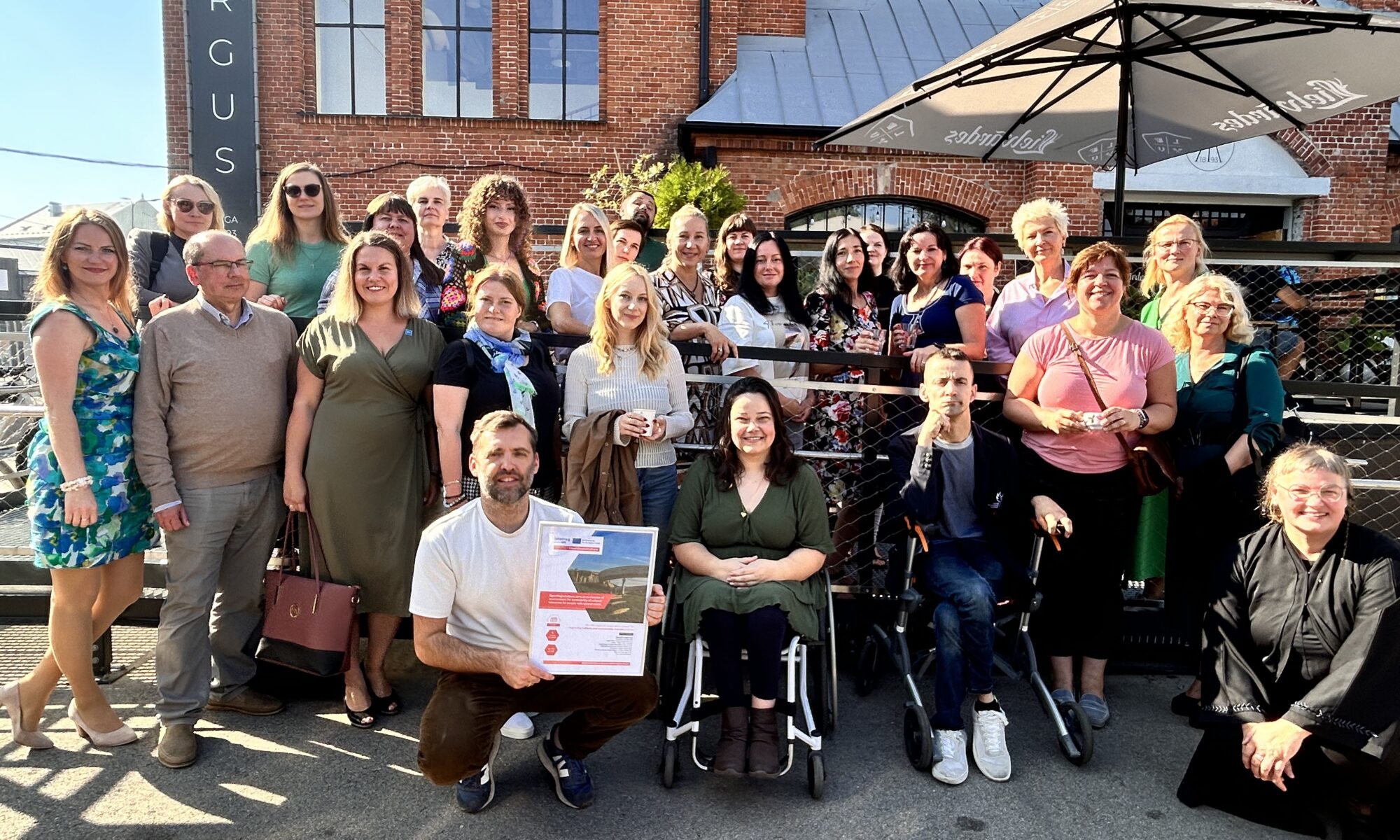On September 19th, a Rīga Planning Region event titled “Slower Tourism for All: How to Make Nature and Cultural Tourism Experiences in the Rīga Region Calmer, More Accessible, and More Meaningful?” took place at Āgenskalns Market. During the “Sustainable Tourism Discussion” meeting, the focus was on improving slow and accessible tourism.
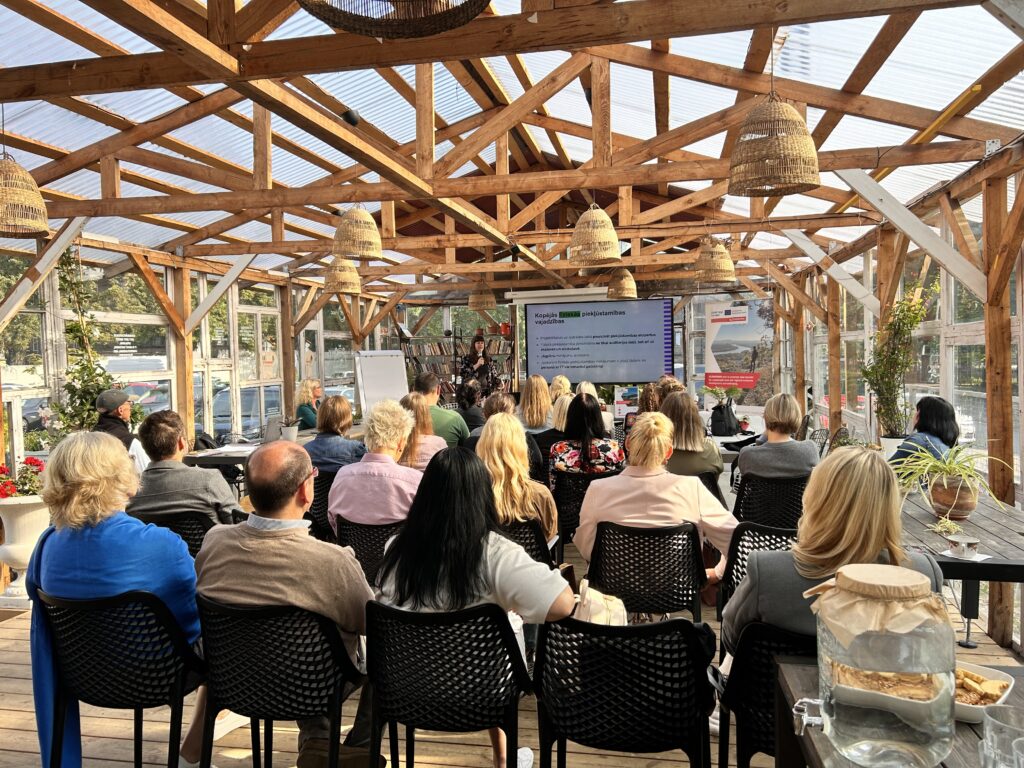
The event gathered a wide range of participants, including representatives from tourism and cultural institutions in Rīga and the surrounding areas, non-governmental organizations, entrepreneurs, accessibility experts, and target group representatives. Among them was Vents Strautmanis, board member of the Latvian Nature Tourism Association. After the event, Vents commented: “It is undoubtedly valuable to learn how we can each adapt our services for people with disabilities. This segment of society is becoming increasingly confident in embarking on adventures and enjoying everyday life independently, integrating into the broader community. By adapting their services, businesses not only gain additional clients and recognition but also bring joy to those for whom this is truly important.”
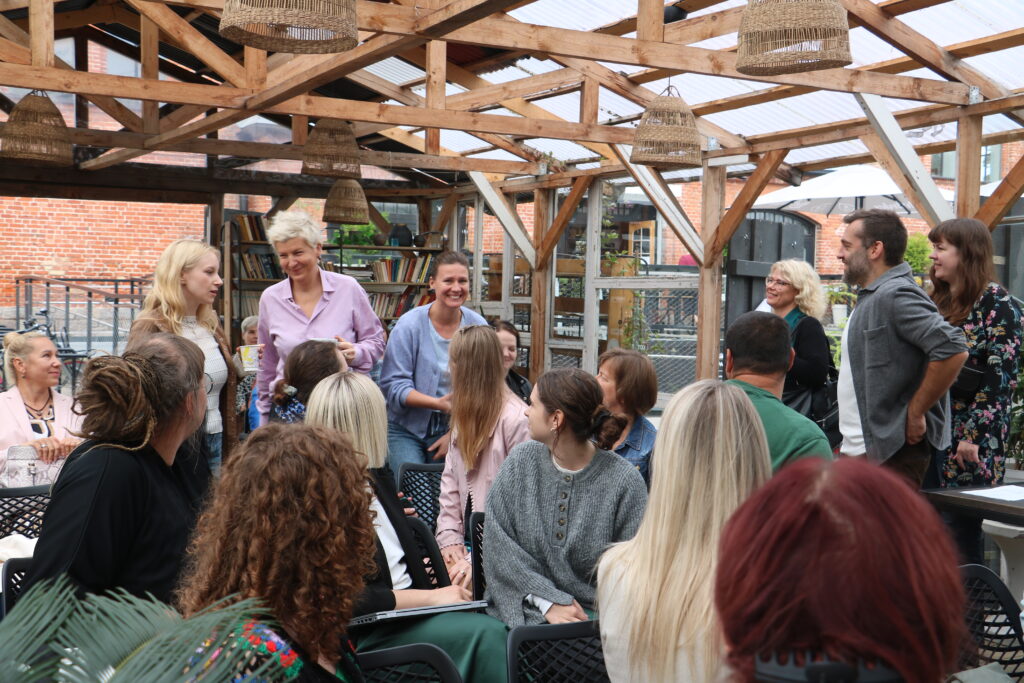
At the beginning of the event, Rīga Planning Region tourism specialist and former board member of the Latvian Nature Tourism Association, Edgars Ražinskis, provided information about the Interreg Europe projects “SLOWDOWN” and “OpenRegioCulture.” The “SLOWDOWN” project focuses on the development of slow tourism, promoting more meaningful interactions with local communities and landscapes in response to the challenges posed by mass tourism.
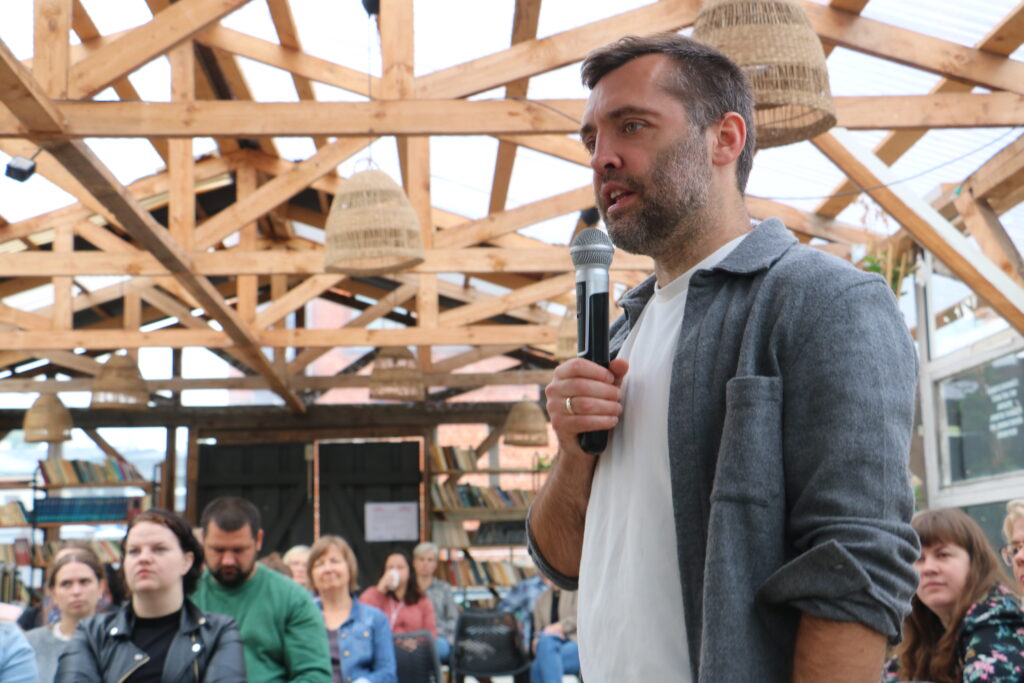
The “OpenRegioCulture” project focuses on the development of accessible tourism and cultural environments, particularly the accessibility of natural and cultural sites for people with disabilities. The results of a study on the accessibility of cultural infrastructure were presented by Kristīne Freiberga and Dita Pfeifere, representatives of the Latvian Academy of Culture.
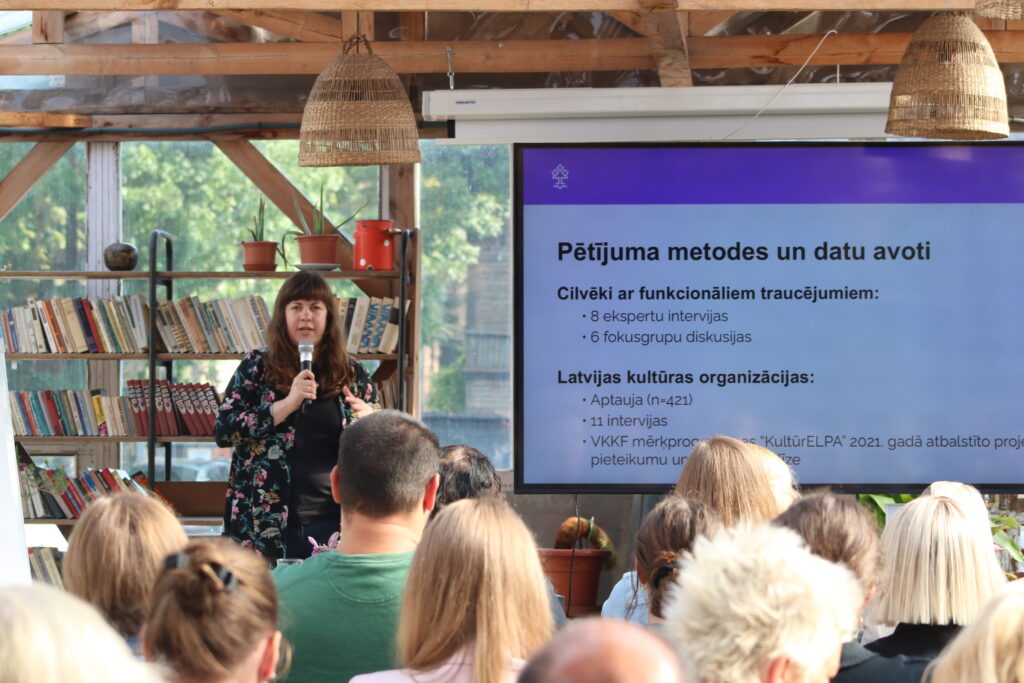
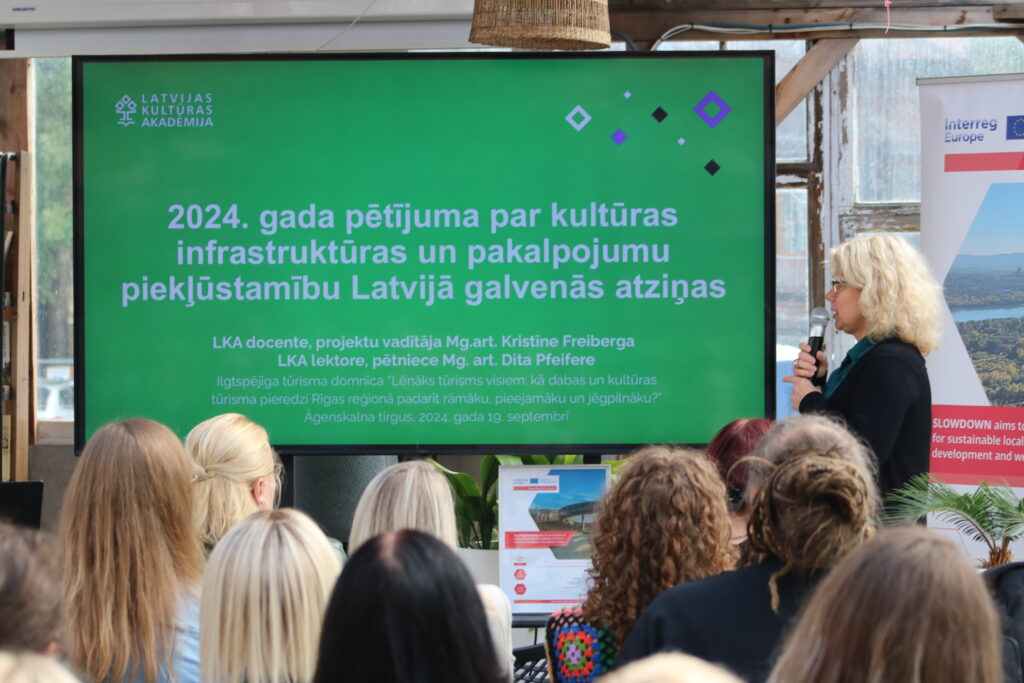
Travel designer Aldis Kušķis shared his experience with sustainable and ethical tourism, while art therapist Lība Bērziņa provided ideas for new and accessible cultural offerings for people with disabilities.
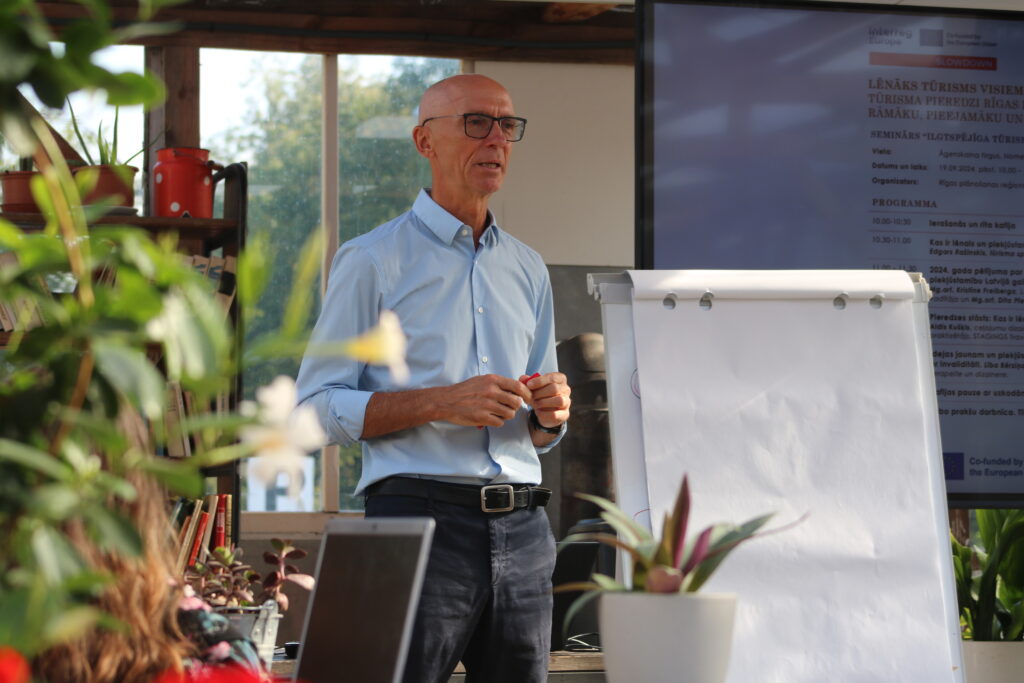
At the conclusion of the discussion, a best practices workshop was held, where participants discussed successful examples of slow and accessible tourism in Rīga and its surrounding areas. Moving forward, both projects will include planned studies, surveys, and the compilation of best practices.
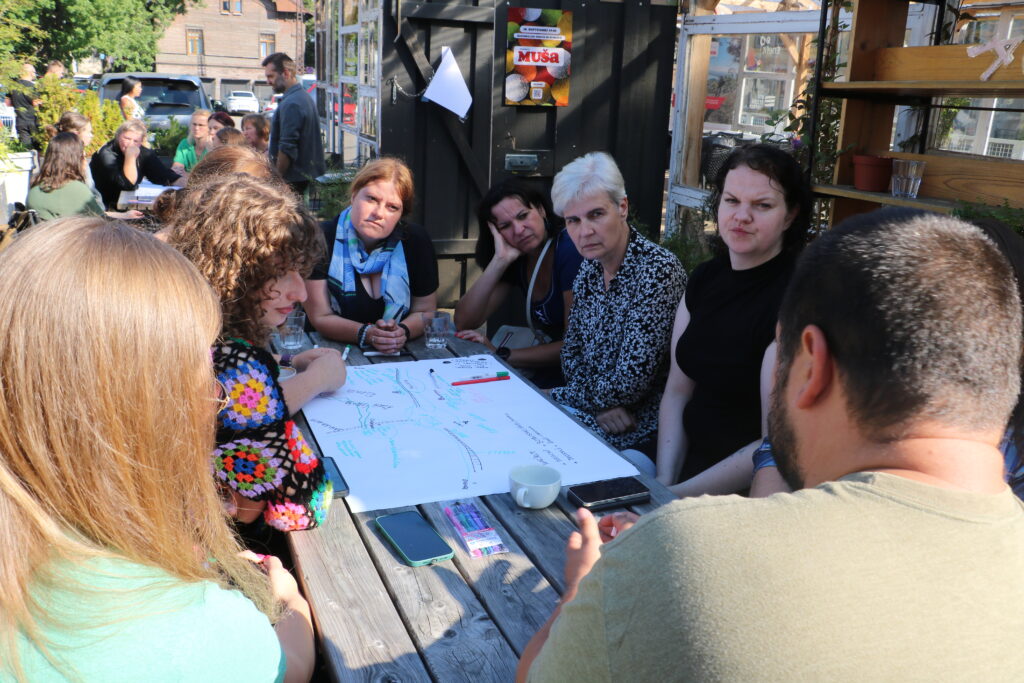
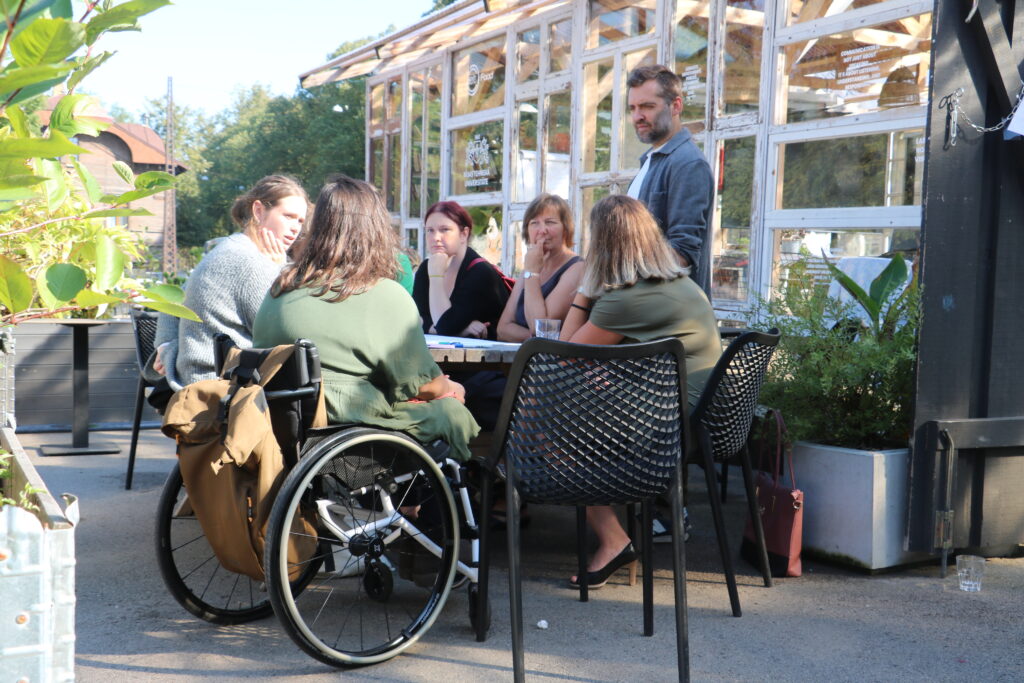
For more information and presentations, visit the link: https://rpr.gov.lv/atskats-uz-ilgtspejiga-turisma-domnicu/
